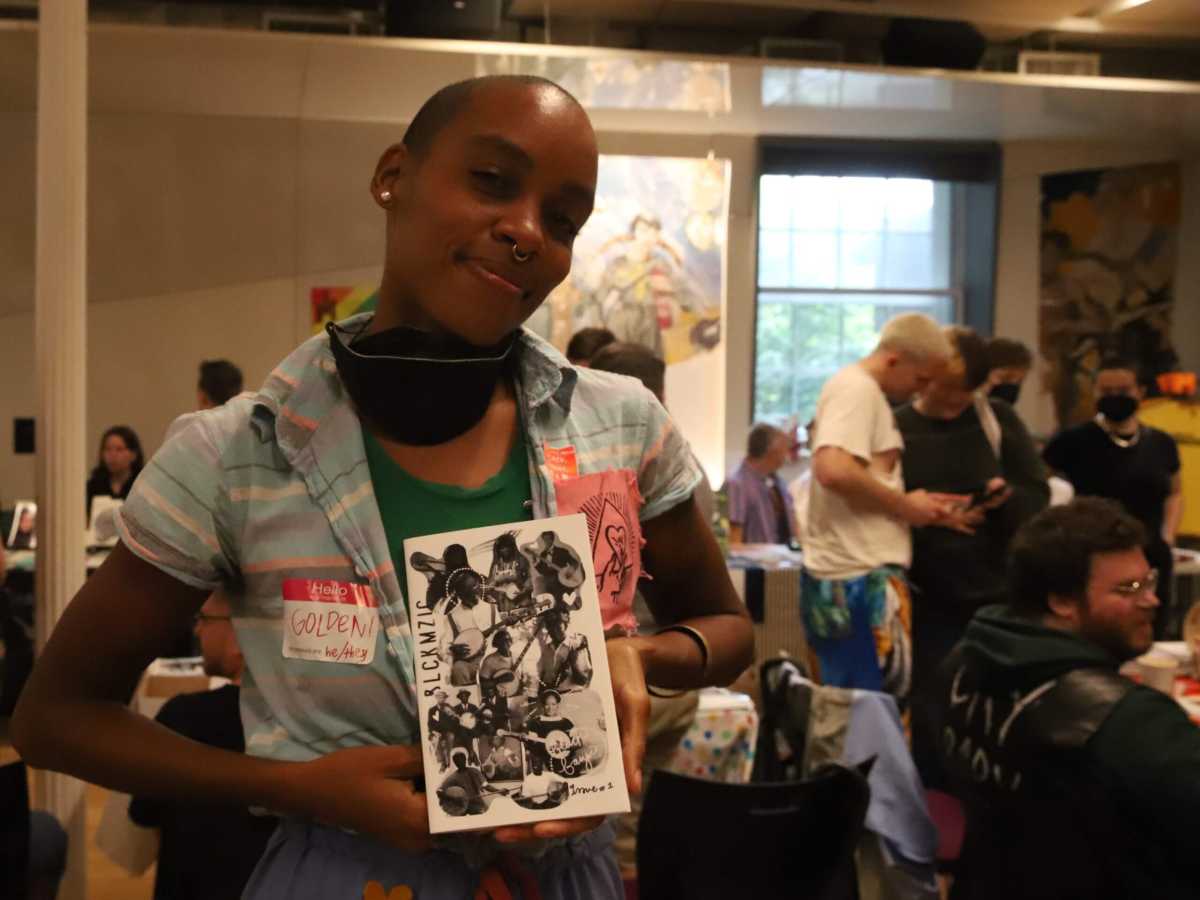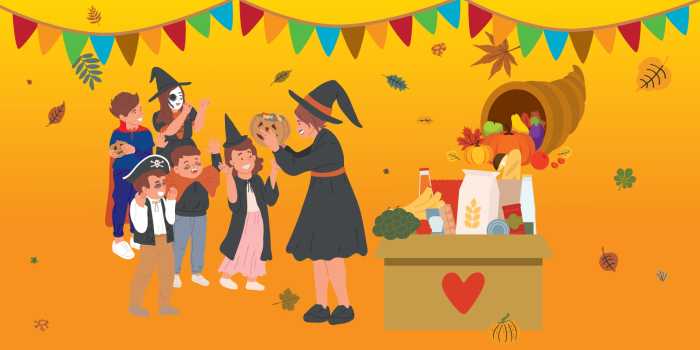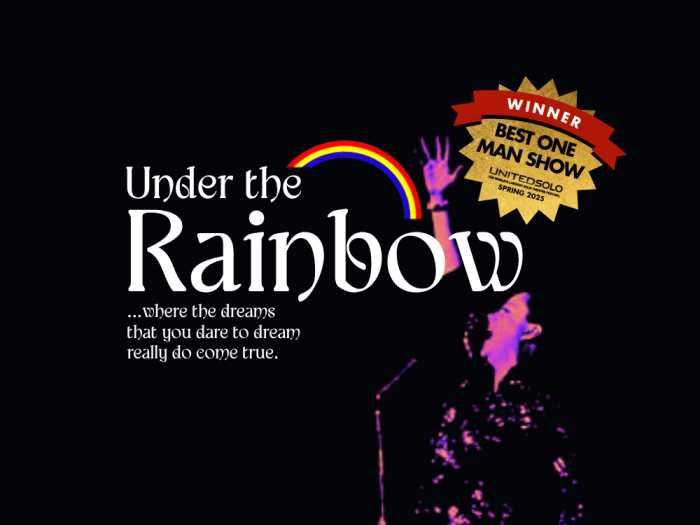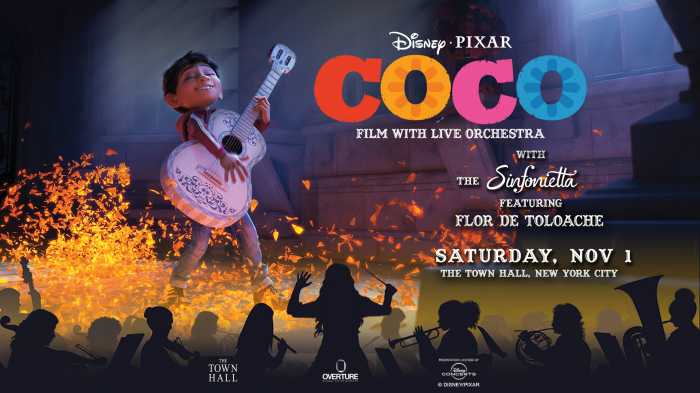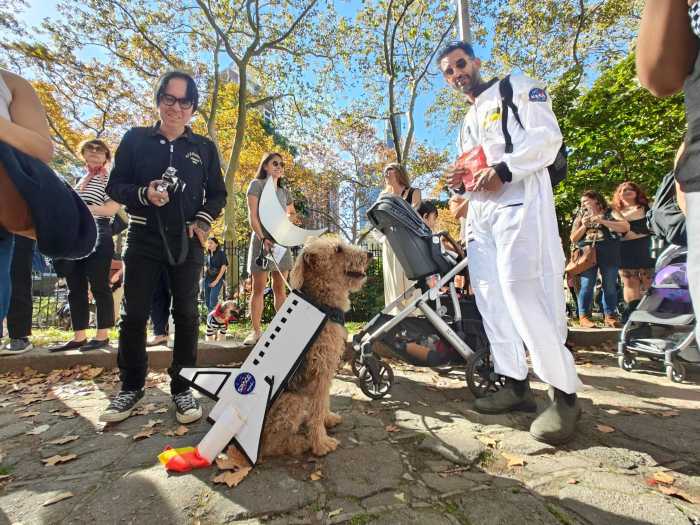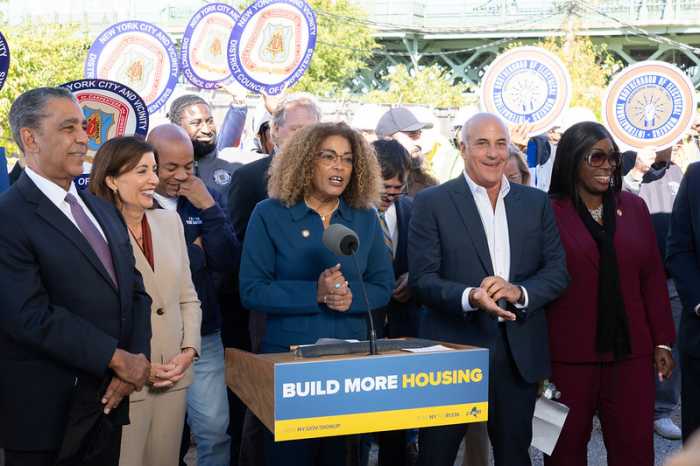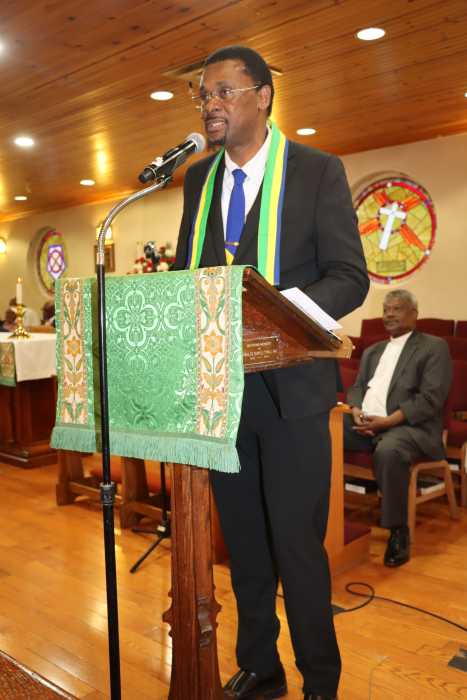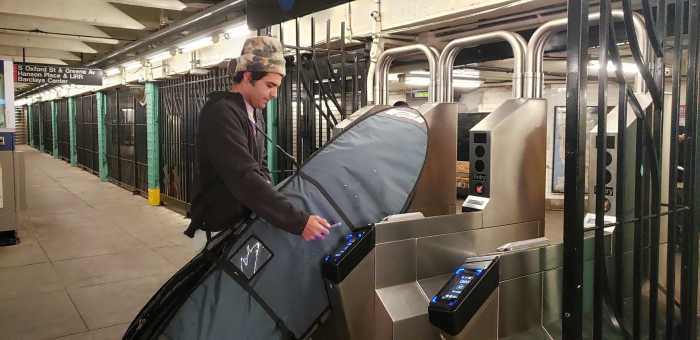The New York Queer Zine Fair returned to the West Village for its eighth year on October 7, bringing together more than 46 artists, sometimes referred to as “zinesters,” from across the globe. They shared their work at the Lesbian, Gay, Bisexual & Transgender Community Center.
Zines are generally small booklets that explore anything from history and politics to quirky underground punk subcultures. Zinesters often make them by hand or through photocopies, but there are no clear rules or guidelines as to what constitutes a zine.
“It’s really the sensibility of making things yourself,” said Paul Moreno, an artist and one of the New York queer zine fair’s founders. “There’s a DIY sensibility.”
Moreno started the New York Queer Zine Fair on a Thursday afternoon after work in 2015 with a small group of friends. Since then it has grown exponentially.
Moreno said he and his co-organizer, Kel Karpinski, don’t ask participants if they themselves identify as LGBTQ, but to him there’s something innately queer about zine-making.
“The desire to do something yourself, and to create media and representation that doesn’t already exist, that reflects either large or small subcultures is, I think, an inherently queer desire,” he said.
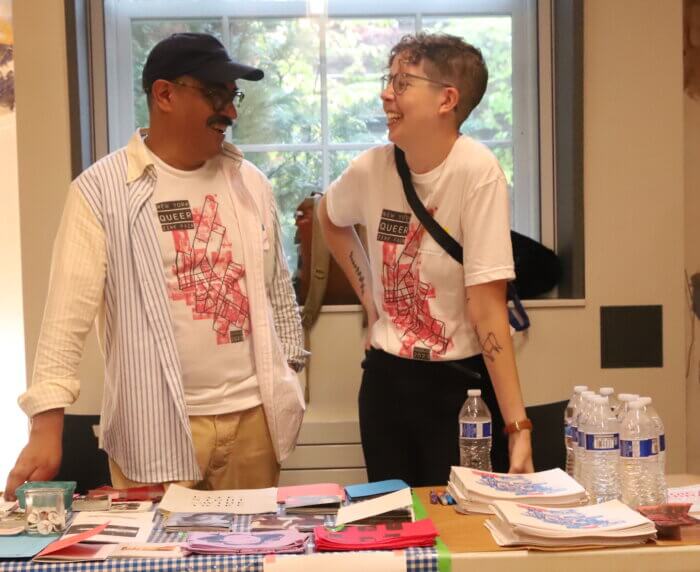
At the fair, crowds of eager onlookers gathered around tables where each artist showcased their work. Many of the zinesters knew each other from attending other fairs, and used the opportunity to reconnect and trade their work.
“I love all of it, I love the community, I love how excited [everyone] gets,” Karpinski said.
All of the zinesters Gay City News spoke to at the festival said they use the art form to share and explore aspects of their identity with the world, and as a relatively low-stakes creative outlet.
Golden Collier, originally from Atlanta, makes zines about, in his own words, “marginalized people of the African diaspora: people of size, people in recovery, youth, low-income people, queer and trans Black people.”
Two of his zines explore the history and cultural significance of playing the banjo, which he said is heavily associated with Black communities in the southeast. Collier grew up playing the banjo, but when he moved to California he realized nobody around him understood its history.
“It’s actually the progeny of the akonting which is a West African Gambian instrument, so I wrote a zine about it,” Collier explained.
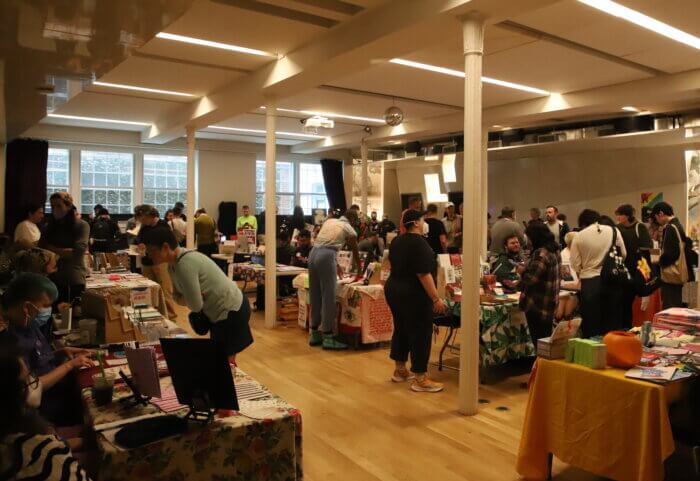
Collier, an art student and teacher currently living in Portland, Oregon, got started zine making six years ago. “You can do whatever you want in zines, can’t you?” he said. “It’s just a lot of people who are following their dreams … It really can be anything, it’s open to everyone.”
Mars, a member of the queer and trans zine collective Three Fifty Collective, has been making zines for more than a decade. They love the relative speed and ease of making zines, compared to their other work with stop-motion. “I love how queer it is, I love how cheap it is,” they said.
At the fair Mars showcased a trans art and poetry zine called “Trace Magazine,” which included a kit to make a DIY gender euphoria paper doll.
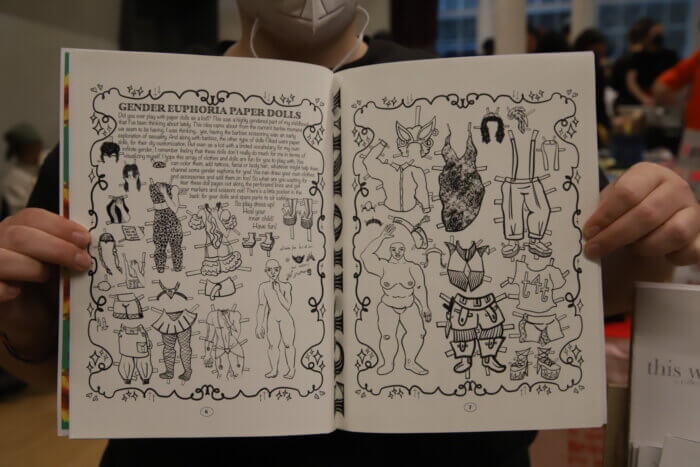
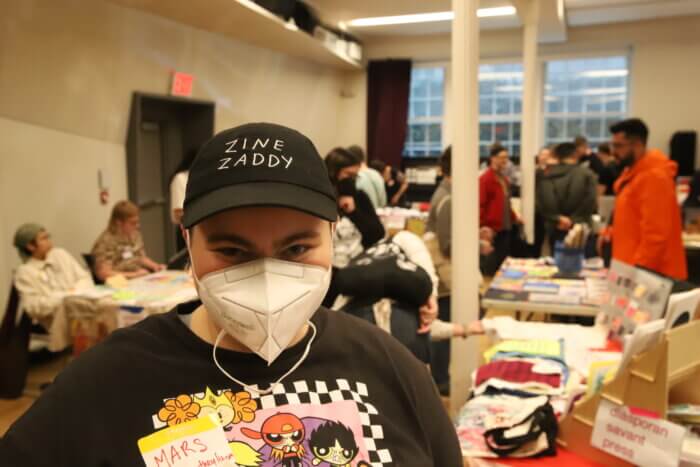
Elliot Case has been making zines since 2016 about being neurodivergent and as a means to share their poetry with friends. They like “being able to share pretty much anything with anyone.” One of their zines is called Distance Vision — it’s a pun about being nearsighted and struggling to visualize a clear future, they said.
Compared to Mars, Collier, and Elliot, some other zinesters got into the game fairly recently. Emma Cornwell, based in Northampton, Massachusetts, started making zines in 2020 when she found herself with more time on her hands due to the COVID-19 pandemic.
“All of my zines are about disability, and really everything in my life but mostly the intersection of disability and queerness,” Cornwell said. “I’ve always been really drawn to zines and for a time I couldn’t find any about disability … so I just started filling that void.”
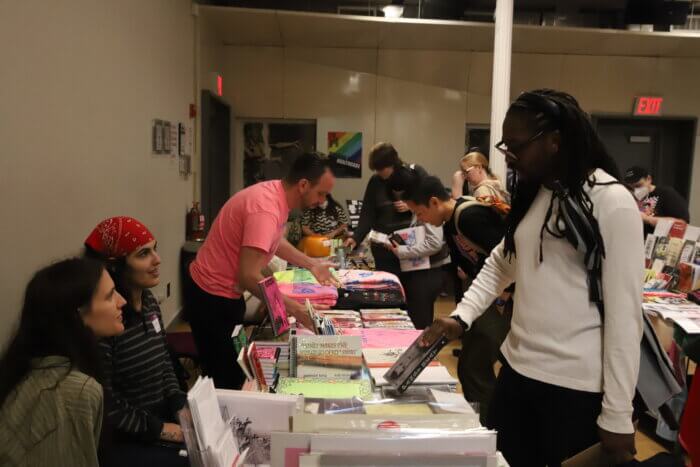
Skylar Wang started her zine-making brand, Sapphic Bushtit, last fall. As the name might suggest, her primary interests are birding (a bushtit is a type of bird), queerness, and mental health. A birder and self-taught photographer, all her photos were taken around the Bay Area, where she lives.
“Being queer I think we’ve all had some mental health journeys, and part of my trauma is never being heard,” Wang said. “So making zines is my way of finally sharing my story with other people.”
Wang got her inspiration after attending the San Francisco zine festival last year.
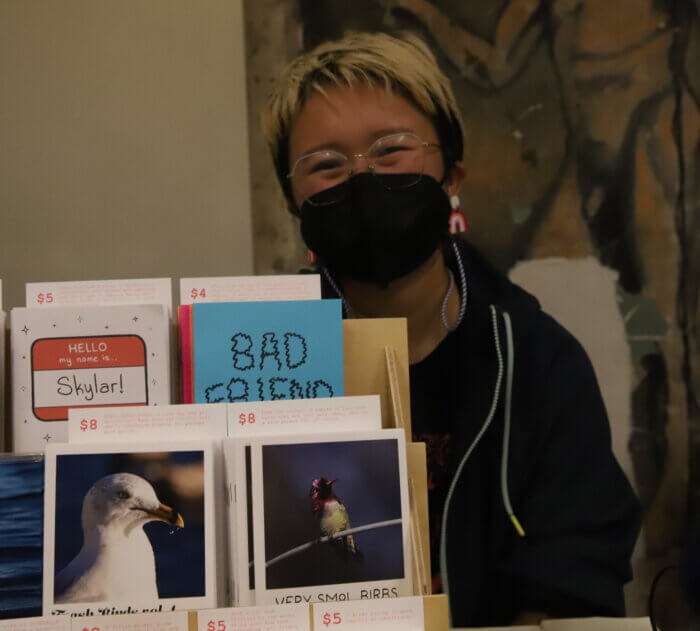
“When I got there I was like oh my god, anyone can make zines,” she said. “For years I had not been able to create anything just because of that burnout and also anxiety and shame of not being good enough.”
Presenting her zines in New York is “something I literally could not ever have imagined for myself just one year ago,” Wang added, smiling.
Visit nyqzf.com to see a complete list of the artists who participated in this year’s fair.
View this post on Instagram

